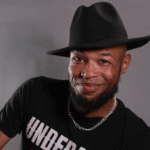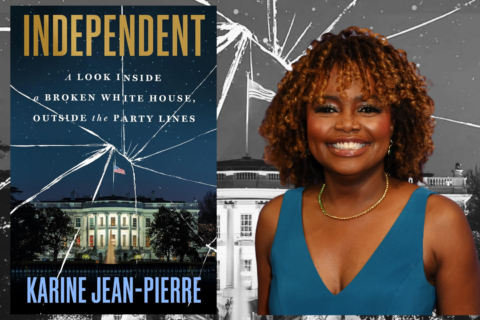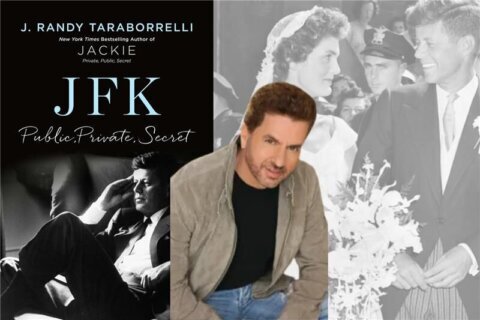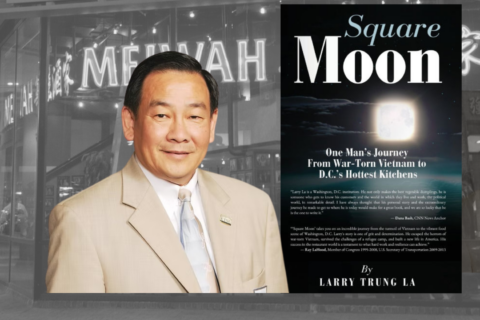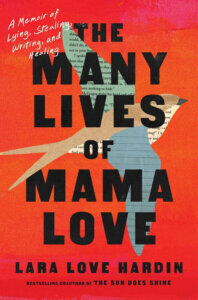
This story was written as part of the WTOP Book Report series authored by Terik King. Read more of that coverage.
When you get right down to it, the group dynamics of a jailhouse are really not all that different from those at a PTA meeting — at least not if you ask bestselling writer Lara Love Hardin, author of the new memoir, “The Many Lives of Mama Love: A Memoir of Lying, Stealing, Writing, and Healing” (Simon & Schuster).
Hardin is now a literary agent and four-time New York Times bestselling ghostwriter, but prior to that, she was a soccer mom in Silicon Valley hiding a secret: she was funding a heroin addiction by stealing her neighbors’ credit cards.
“I was really playing the role of a perfectly happy person in a perfectly happy life,“ Hardin told the WTOP Book Report. “And that wasn’t the case.”
With a knock on her door by the Santa Cruz Sheriff’s office, it all came crumbling down. Hardin was thrown into the county jail, held on $250,000 bail and charged with 32 felony counts — literally a separate charge for every fraudulent credit card transaction. What followed was a compelling, fascinating and, at times, laugh-out-loud funny journey toward redemption and self-acceptance.
‘Like a PTA meeting’
After an agonizing few initial days of detoxing from her addiction behind bars, Hardin began to observe the interpersonal dynamics of the county jail: the power structure between inmates, between inmates and guards, and what passed for social and literal currency.
Hardin told WTOP that she draws a fascinating parallel between those jailhouse dynamics and the seemingly ordinary Parent-Teacher Association (PTA) meetings.
“Look, there’s power struggles at a PTA meeting over … fundraising, or who’s in control or who’s delegating things,” she said. “I think you get that in any group, potentially. So, you know, I approached it that way. Maybe no one else had that way of seeing it, but that’s what I knew.”
‘Mama Love,’ the ‘shot-caller’
Her story reaches a pivotal moment when Hardin harnesses her maternal instinct to rise in the ranks on the inside, earning the respect of her fellow inmates.
It began when the jail’s “shot caller,” a woman who went by the name “Daddy,” was in conflict with another inmate.
“In that moment — you know, I had six children — I was just, like, I just need some quiet, right? So, I pulled Daddy aside and I whispered this (mantra) to her: ‘Real power is quiet power.’ And it changed the whole dynamic in there,” Hardin reflected.
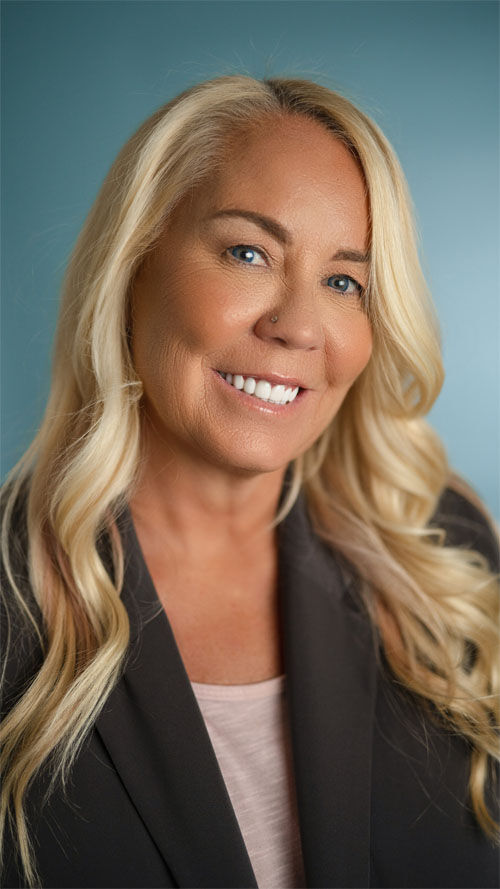
“Because instead of fighting with this woman, she just stayed silent all day. And as every hour went on, this made the woman who she was in conflict with completely uncomfortable, and so I helped Daddy save face. And this became sort of the mantra in there with everyone trying to, you know, out-quiet-flex on each other, right? And so, after that whole incident, I got moved up to the top tier.”
By using her maternal instincts to connect with fellow female inmates, Hardin — a.k.a. “Mama Love” — created a network of support and healing amid the challenging environment.
“Because I was older, and because I had started writing poems about people, and that people felt seen as (they) do when you write about them,” she said. “So the power dynamic really changed in there, you know, I got to, you know, be my version of the shot caller in jail, like PTA president.”
Life as a ghostwriter
Having pleaded guilty to the felony charges and awaiting the end of her sentence, Hardin began to draw upon her long-dormant writing talents to craft persuasive letters on behalf of her fellow inmates.
“That’s what I was always good at,” Hardin said. “And when I took that first opiate, which used to be handed out like sample packs at the doctor’s back in the day, I stopped writing. So, when I was off the drugs and in jail, that writing piece came back out of me.”
Through these letters, she pleaded with judges to reconsider inmates’ sentences, advocating for long-term residential drug treatment programs instead of imprisonment, visitations and other pleas. Her words became a lifeline, securing passes for funeral visits, high school graduations and other pivotal events in the lives of her fellow inmates’ children.
Yet for all of Hardin’s ability to empathetically channel the perspectives of others, she remained challenged to set her own voice free.
“Writing as these women, I was a great success,” she said. “But when I tried to write my own pass, to write my own letter to the judge to get a pass to attend my oldest son’s high school graduation — the judge denied it.”
Ultimately, Hardin’s challenge upon release from jail would be to reconcile the shame she carried about her past with the promise of her future.
She would get the opportunity some seven years after she was freed. After landing a position as a literary agent, Hardin managed to parlay her skill for writing from the perspective of others into a career as a collaborative writer — commonly known as a ghostwriter — collaborating on bestselling books with such authors as Archbishop Desmond Tutu (“The Book of Forgiving”), the Dalai Lama (“The Book of Joy”) and Jane Goodall (“The Book of Hope”).
As an agent, she also met attorney and Equal Justice Initiative founder Bryan Stevenson when she represented his acclaimed book, “Just Mercy.”
Stevenson was one of the first authors Hardin said she told her story to.
“And he was like, ‘Oh, cool, great, that’ll help you with Ray’s book.’”
Stevenson then introduced Hardin to Anthony Ray Hinton of Alabama, who had spent 30 years on death row for two 1985 murders he did not commit.
Stevenson and the EJI had represented Hinton for more than 15 years of litigation and appeals, resulting in his ultimate release. Now, Stevenson wanted Hardin to help Hinton tell his story.
“The fact that I knew what it was like to be alone, and isolated from the world and have that door shut and lock, and be referred to as a number,” Hardin recalled. “It comforted him. We bonded instantly.”
The book they wrote together, “The Sun Does Shine,” prominently featured Hardin’s name on its cover as a co-author for the first time.
“He was innocent; I was super guilty. But he trusted me to tell the story,” Hardin said. “A middle-aged white woman from California was the last person he thought would help him tell his story of growing up in Alabama. But we found a lot of common ground when we worked on that book. And that’s the one Oprah chose for her Book Club” in 2018.
The Oprah Book Club selection would lead to Hardin’s “full-circle” moment: bestselling success as a writer under her own name, and an audience with the Big O herself.
“Getting to meet Oprah and having her talk to me about power,” Hardin said, “and what real power is from her perspective, which she did at a lunch after that announcement, was this full-circle moment from that time with Daddy … If you fictionalize it, it’d be unbelievable. And it was true.”
“The Many Lives of Mama Love” is a powerful testament to the resilience of the human spirit. Through Lara Love Hardin’s candid storytelling, readers are invited to witness a remarkable journey of self-discovery and compassion. By embracing the truth of her own challenging life path, and advocating through the written word, Hardin brings to life a story that is both profoundly moving and universally resonant.

